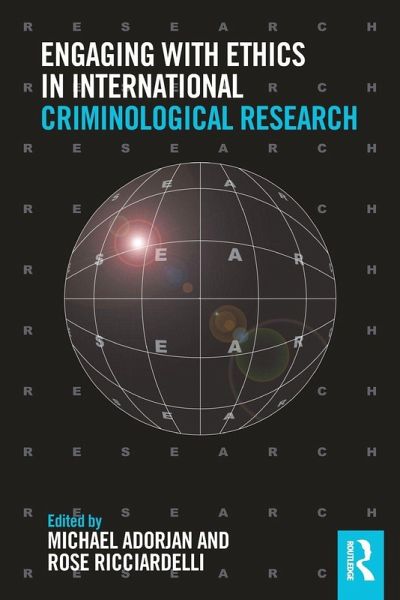
Engaging with Ethics in International Criminological Research
Versandkostenfrei!
Versandfertig in 1-2 Wochen
67,99 €
inkl. MwSt.

PAYBACK Punkte
34 °P sammeln!
Drawing on the experiences and expertise of a range of international contributors, this books centres on the realpolitik of conducting criminological research and discusses the ethical challenges and dilemmas involved.


